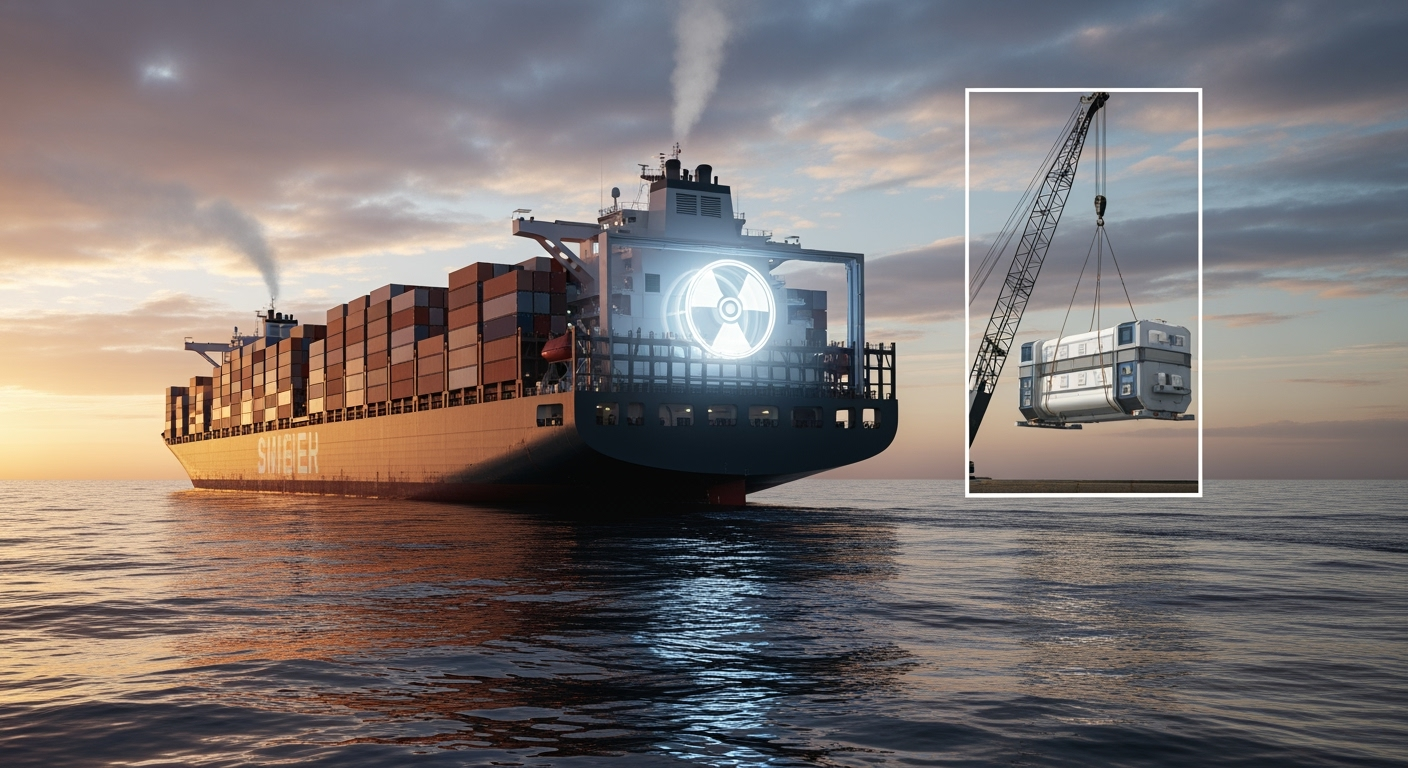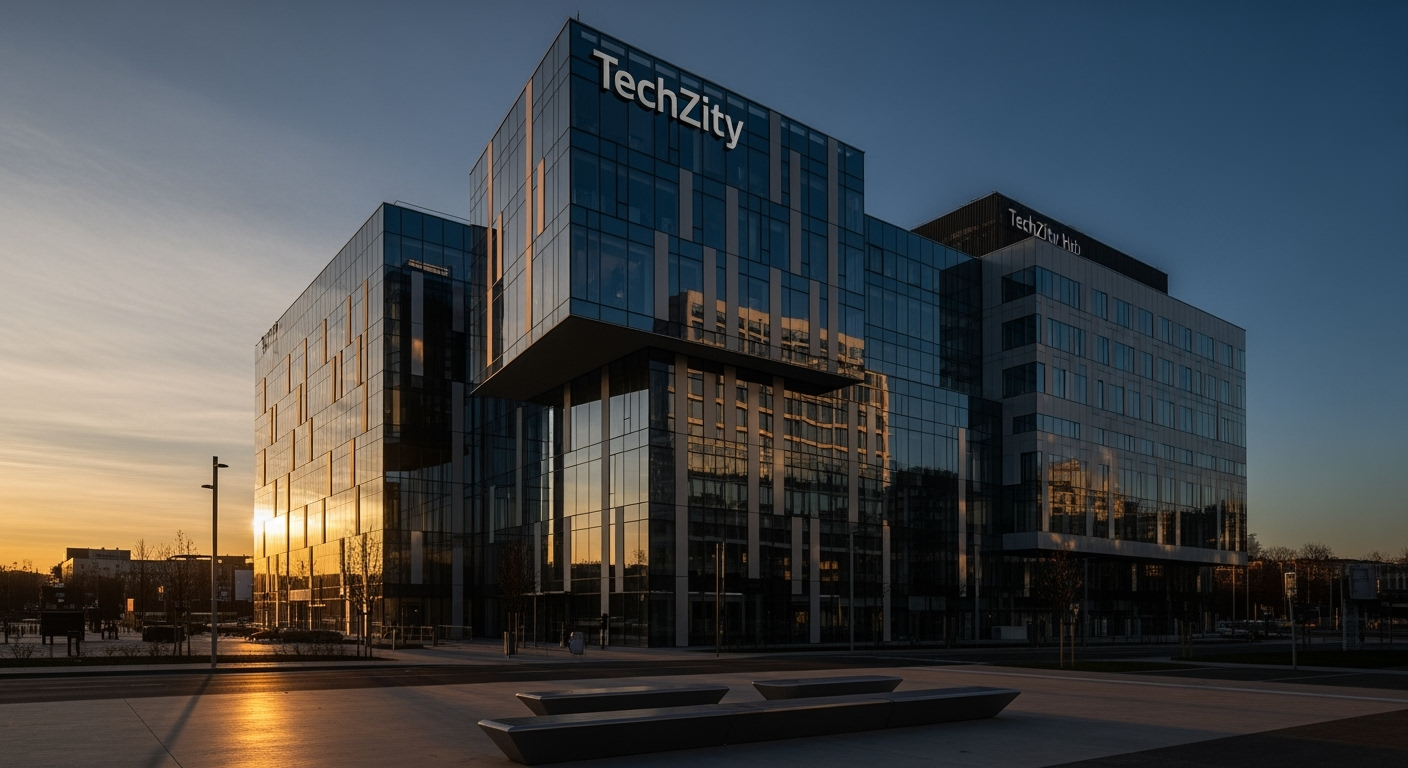Related Articles

China Intensifies Economic Pressure on U.S. Amid Escalating Trade War




VILNIUS, Lithuania – In a bold statement of its burgeoning technological ambition, Lithuania is constructing TechZity Vilnius, poised to become the largest technology and creative industries hub in Europe. This ambitious €100 million project in the heart of the capital aims to consolidate and accelerate the nation's already rapidly expanding startup ecosystem, projecting Lithuania onto the global tech stage with unprecedented scale and vision. The development is designed not merely as an office complex but as a dynamic, integrated community fostering innovation, collaboration, and significant economic growth.
The Vision Takes Shape: TechZity's Ambitious Scale
Located on the revitalized grounds of the former Lelija sewing factory in Vilnius's Naujamiestis district, TechZity Vilnius represents a monumental infrastructure investment. The expansive hub will span 55,000 square meters, designed to accommodate up to 5,000 workers upon its full completion. The project is rolling out in phases, with the initial 16,500-square-meter segment anticipated to open its doors in the summer of 2025. Impressively, 75% of these first-phase spaces are already leased or reserved, signaling strong demand and confidence in the venture. The total development, including existing smaller Tech Zity hubs such as Tech Park, Tech Loft, Tech Arts, and Tech Spa, will encompass an impressive 75,000 square meters across the region.
The new campus is being meticulously designed to support a vibrant and diverse community. Plans include modern offices, extensive co-working spaces, and a state-of-the-art conference center capable of hosting up to 1,000 participants across its four distinct areas. Beyond work, TechZity aims to cater to holistic well-being with eight different restaurants, cafes, bars, a fitness center, and a dedicated sports and wellness club. Further integrating work and life, approximately 70 to 80 co-living lofts are slated for construction above the office spaces, fostering a unique blend of professional and social interaction. Darius Zakaitis, co-founder of TechZity, articulated the philosophy behind the design, citing the "cathedral effect" as a driver for creativity, where high ceilings and a stimulating environment among equally innovative individuals spark fresh ideas.
Powering Lithuania's Startup Ascent
The emergence of TechZity Vilnius is a direct response to, and an intended catalyst for, the extraordinary growth witnessed in Lithuania's startup ecosystem over the past decade. The nation's tech landscape has transformed from a regional underdog into one of Europe's most dynamic hubs. In 2024, Lithuania's startup ecosystem surpassed a valuation of €16 billion, marking an astounding 39-fold growth over the last ten years, even amidst a broader European investment slowdown. This positions Lithuania as the second-fastest-growing startup ecosystem in Central and Eastern Europe, outpaced only by Estonia. The combined enterprise value of Lithuanian startups grew 7.1 times between 2018 and 2023, doubling the average growth seen in both the wider Baltic and CEE regions.
Lithuania currently boasts approximately 1,000 startups, including three highly successful unicorns: Vinted, Nord Security, and Baltic Classifieds Group. Investment in these ventures remains robust, with Lithuanian startups attracting €128 million in 2024. While late-stage funding experienced a decline, early-stage investment activity remained strong across various sectors. The country ranked second in Central and Eastern Europe for venture capital investment in 2023. Key sectors driving this growth include fintech, cybersecurity, transportation, enterprise software, gaming, mobility, energy, biotech, and laser technology, with Vilnius particularly excelling in fintech, transportation, and security. This impressive trajectory underscores a national commitment to innovation, supported by a favorable regulatory environment, including a promising Fintech regulatory sandbox.
Cultivating Innovation and Community
TechZity is designed with a clear purpose: to be more than just a collection of buildings. It is conceived as an ecosystem explicitly built to foster collaboration, cultivate talent, and accelerate the development of innovative solutions. The strategic integration of diverse facilities—from dedicated workspaces to educational areas, event venues, and leisure options—aims to create a fluid environment where accidental encounters and structured collaborations can both thrive. This human-centric approach is intended to attract and retain top talent, both locally and internationally.
Initial tenants reflect the hub's diverse focus on cutting-edge industries. Among the early commitments are Omnisend, a leading e-commerce solutions provider; HeavyFinance, a climate technology startup; Turing College, an innovative AI education platform; and game developers Pepi Play and TutoTOONS. These early adopters highlight TechZity's appeal across various high-growth tech sectors. The project's emphasis on communal spaces and event programming is expected to solidify TechZity's role as a vibrant meeting point for innovators and creatives, not only from Lithuania but from across the broader region.
Economic Engine and Future Prospects
The strategic importance of TechZity extends far beyond its physical footprint. It is envisioned as a powerful economic engine, contributing significantly to job creation, attracting further international investment, and enhancing Lithuania's global competitiveness. The government and tech leaders share an ambitious goal: to see the startup sector contribute 25% of Lithuania's GDP by 2030, a substantial leap from its current 5%. To achieve this, the Ministry of the Economy and Innovation has set targets to triple startup sales, exports, and attracted investments between 2028 and 2030.
Lithuania's reputation for a skilled and affordable talent pool, coupled with high English proficiency among its workforce, further strengthens its appeal as a tech destination. The new hub will serve as a beacon, drawing in both established companies and emerging startups, thereby solidifying Vilnius's position as a magnet for innovation. TechZity Vilnius, by its sheer scale and comprehensive offerings, is poised to surpass existing European tech campuses, including Paris's renowned Station F, making it a critical landmark in the continent's tech landscape.
TechZity Vilnius stands as a testament to Lithuania's unwavering commitment to fostering a world-class innovation ecosystem. By providing an unparalleled environment for growth, collaboration, and talent development, this monumental hub is set to not only crown Lithuania's bustling startup scene but also to establish a new benchmark for technological ambition and community building across Europe. The project embodies the nation's strategic vision for a future driven by innovation and its potential to redefine its economic landscape.